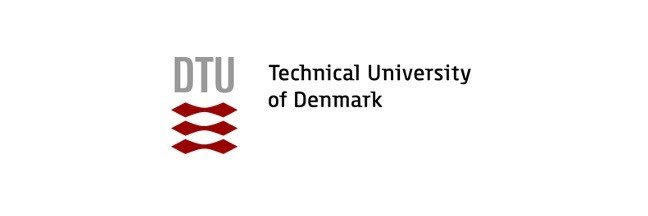Job Description
The Section for Autonomous Materials Discovery (AMD) at DTU Energy is looking for an outstanding postdoc to lead the effort in developing geometric graph neural networks for accelerating the understanding of electrochemical interfaces.
Project Descriptions
The AMD section is a leading group combining atomic- and multiscale modeling techniques, machine learning methods, and self-driving laboratories to accelerate the discovery of novel materials for energy conversion and storage. The fellowship is part of the EU-H2020 DECODE project (“De-centralised cloud labs for the industrialisation of energy materials”), which target the development of a cloud platform that will link multiple labs to accelerate materials development and integration for the clean energy technology sector (https://decode-energy.eu). The candidate will focus on building geometric graph neural networks that can become reliable surrogate models for applied potential quantum mechanical simulation of the solid/liquid interface. This is going beyond the state of the art for equivariant graph neural networks in molecular simulation. Currently, there is no model that works with applied potential simulations, which is a global external variable. The candidate will also build models that work with magnetic properties of atomic structures as well as can predict magnetic properties for large system. For that, he/she will also use geometric graph neural network architectures that not only have node decomposed contributions but also consider global graph structures, allowing longer-range interactions, such as dilated convolutions. The candidate will work in collaboration with multiple national and Horizon Europe projects, which include: BATTERY 2030+ CSA3 (which aims at contributing to the definition of research data management standards and to develop an EU battery data landscape); “Capturing Ultrafast Electron and Ion Dynamics in Batteries” (UltraBat, aiming at understanding the battery interface); and “Battery Cell Assembly Twin” (BatCAT, which focuses on creating digital twin for battery manufacturing that integrates data-driven and physics-based methods). Moreover, this project is strongly linked with CAPeX, the new “Pioneer Center for Accelerating P2X Materials Discovery” anchored at DTU Energy (www.capex-p2x.com).The candidate will thus contribute to develop a data infrastructure able to orchestrate multi-scale and multi-fidelity data linking the abovementioned projects.
Qualifications
Candidates should hold a PhD or equivalent degree in computational chemistry, physics, materials, or computer science. The candidates must have a strong background in computational methods like density functional theory and/or machine learning and sufficient Python programming skills to implement new methods/models needed for the project. The successful candidate is expected to have performed original scientific research within the relevant fields listed above. Moreover, the successful candidate:
- is innovative and able to work both independently and in cross-disciplinary teams,
- has excellent communication skills in English, both written and spoken,
- can work independently and take responsibility for the progress and quality of projects.
Assessment
The Head of the Section, Professor Tejs Vegge, Professor Ivano E. Castelli, and Associate Prof. Arghya Bhowmik (DTU) will assess the applicants.
We offer
DTU is a leading technical university globally recognized for its excellence in research, education, innovation, and scientific advice. We offer a rewarding and challenging job in an international environment. We strive for academic excellence in an environment characterized by collegial respect and academic freedom tempered by responsibility.
Salary and terms of employment
The appointment will be based on the collective agreement with the Danish Confederation of Professional Associations. The allowance will be agreed upon with the relevant union.
The period of employment is two years. The employment is expected to start on February 1st, 2025, or shortly after that. The position is a full-time position.
You can read more about career paths at DTU here.
Further information
Please contact Prof. Ivano E. Castelli at ivca@dtu.dk or Assoc. Prof. Arghya Bhowmik at arbh@dtu.dk if you need further information concerning these positions.
Please do not send applications to these e-mail addresses, instead, apply online as described below.
If you are applying from abroad, you may find helpful information on working in Denmark and at DTU at DTU – Moving to Denmark.
Application procedure
Your complete online application must be submitted no later than 28 January 2025 (23:59 Danish time).
Applications must be submitted as one PDF file containing all materials to be given consideration. To apply, please open the link “Apply now,” fill out the online application form, and attach all your materials in English in one PDF file. The file must include:
- Application (cover letter)
- CV
- Academic Diplomas (MSc/PhD – in English)
- List of publications
- A short highlight of your academic achievements (half page)
- List of References (at least two)
Applications received after the deadline will not be considered.
All interested candidates irrespective of age, gender, disability, race, religion or ethnic background are encouraged to apply. As DTU works with research in critical technology, which is subject to special rules for security and export control, open-source background checks may be conducted on qualified candidates for the position.
The Department of Energy Conversion and Storage (DTU Energy) focuses on research and development of functional materials, components, and systems for sustainable energy technologies. The technologies include fuel cells, electrolysis, power-to-x, batteries, and carbon capture. The research is based on strong competences on electrochemistry, atomic scale and multi-physics modelling, autonomous materials discovery, materials processing, and structural analyses. We also focus on educating engineering students at all levels, ranging from BSc, MSc, PhD to lifelong learning students. We have about 270 dedicated employees. Read more about us at www.energy.dtu.dk.
Technology for people
DTU develops technology for people. With our international elite research and study programmes, we are helping to create a better world and to solve the global challenges formulated in the UN’s 17 Sustainable Development Goals. Hans Christian Ørsted founded DTU in 1829 with a clear mission to develop and create value using science and engineering to benefit society. That mission lives on today. DTU has 13,500 students and 6,000 employees. We work in an international atmosphere and have an inclusive, evolving, and informal working environment. DTU has campuses in all parts of Denmark and in Greenland, and we collaborate with the best universities around the world.




